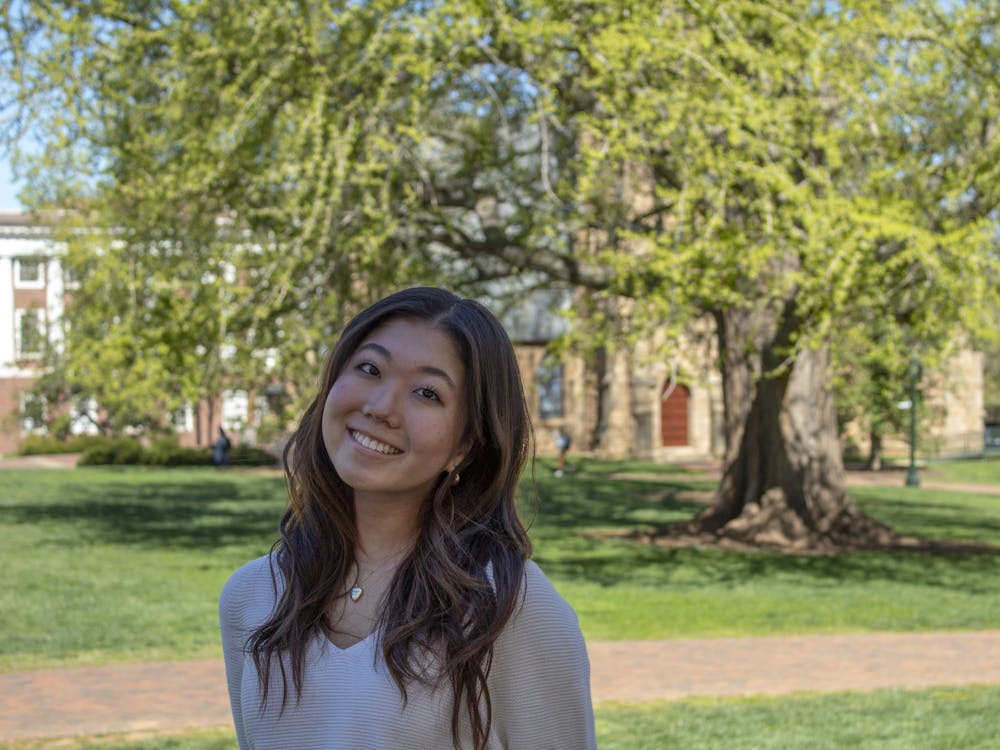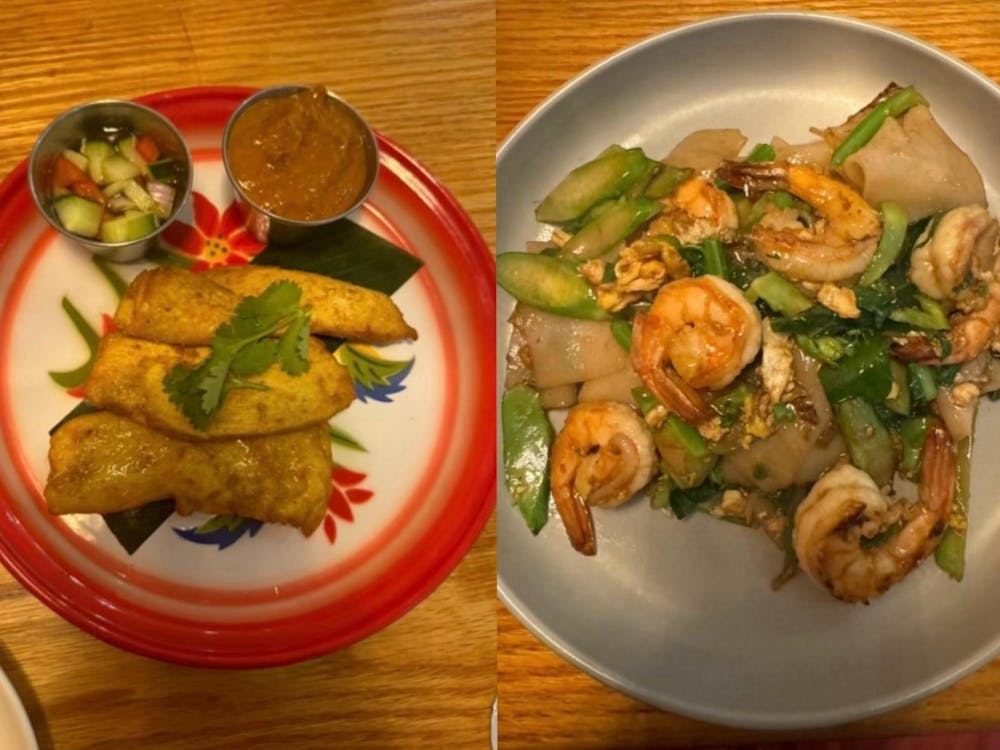With all the hustle and bustle that being a University student entails, it's easy to forget that U.Va. lies in the middle of a wider community with its own momentum and problems.
Some students, however, go beyond merely noticing that community and actually become involved with it.
And one of those students has recently been recognized for those efforts and been awarded the chance to develop them further.
John Kiess, who graduated from the College in 2001, was selected as one of the 11 George Mitchell scholars for 2004.
Mitchell scholars are awarded one year of graduate study at an Irish university. Kiess will pursue a master's degree in Comparative Ethnic Conflict at Queen's University in Belfast.
The scholarship, which was endowed by the Irish government to foster relationships between Ireland and the next generation of U.S. leaders, is named for the former U.S. senator who served a pivotal role in the Northern Ireland peace process.
Kiess said his program is a study of how ethnicities are defined and how conflicts between them can be resolved peacefully.
"It embodies a global perspective while also concentrating on the conflicts in Belfast itself," Kiess said.
For Kiess, the chance to study conflict is the next step in a life spent examining ethnic conflicts.
During his undergraduate career, Kiess wrote his Political and Social Thought thesis on Dietrich Bonhoeffer, a German theologian who lived during the Nazi era.
While writing about Bonhoeffer's life, Kiess became fascinated with the connection between faith and social justice.
Kiess won the Goodwin writing prize in theology for his thesis, but the work also changed his life path.
"As a consequence of what I was studying, I began to try to find the connections in my own life," Kiess said.
Deciding he wanted to see the other side of Charlottesville, Kiess began to volunteer with the Abundant Life program, an organization that aids residents around Prospect Avenue, a low-income
neighborhood.
After graduation he moved in with a friend in the neighborhood as an AmeriCorps volunteer.
Since then he has been involved in what he calls "stimulating grassroots leadership in a
disadvantaged community."
Essentially, he tries to work with his neighbors to facilitate a dialogue between the residents and City Council. Prospect residents generate and implement their own solutions to problems ranging from a need for street lights to drug abuse.
"The residents know best the strengths and weaknesses of the community," Kiess said.
Kiess has also secured more than $50,000 for the community by applying for a number of private grants.
He received $26,500 from the Virginia Tobacco Settlement Foundation for a life-skills initiative for at-risk youth.
And he won $24,000 from the Corporation for National Service, a part of AmeriCorps, for anti-poverty initiatives.
Keiss said the last year and a half has been a second education.
"It's meant a lot to live here and be taught by my neighbors," he said. "I can't consider them poor anymore. This is what constitutes richness."
As meaningful as his experiences have been, however, working with Abundant Life does not exactly provide Kiess with the money to go on to graduate school.
That's where Nicole Hurd, College Fellowships Office assistant dean and director, comes in.
"Nicole Hurd is the best ever," Kiess said. "She put this in my ear, and really believed in the potential, and she went for it."
Kiess was looking at different ways to go back to school, so he went to talk to Hurd in the University's Center for Academic Excellence.
"John typifies everything a fellowship candidate should be," Hurd said. "He has the most exceptional record of service I've seen. I thought he'd be a good match for the Mitchell Scholarship" because of their emphasis on community service.
In fact, Hurd and other members of the center were so inspired by Kiess' dedication to the Charlottesville community, they have asked him to serve as an advisor in starting a few initiatives of their own.
"After working with him, we started talking about ways U.Va. could help the community," Hurd said.
The center has convinced Kiess to work as the point person in a program that will match students and faculty with grants. The grants will help them start and sustain volunteer efforts in Charlottesville.
"It will be one of his legacies," Hurd said.
The ability to leave such a legacy is exactly what made Kiess such a strong candidate, said Dell Pendergrast, director of the Mitchell Scholarship.
"He embodies the very qualities we seek," Pendergrast said. "He has not only strong academics, but a very strong sense of community commitment and demonstrated leadership."
Pendergrast said that this year's 11 recipients were chosen from around 300 applicants.
"It was not a very easy decision," Pendergrast said. "John was among the very best."
In past years, Mitchell scholars have withdrawn from the Rhodes competition and turned down Fulbright and Marshall Scholarships.
"Mitchell scholars are not just great students, but really involved in community," Pendergrast said. "That's what sets us apart. We're delighted John will be joining us."
Kiess will leave for his program in the fall, and spend a year in Belfast. He's not sure where he'll go from there.
But he is sure this opportunity is exactly what he needs.
"I want to continue to chase this connection [between faith and social justice]," Kiess said. "Belfast could be a continuance of my work here. There are certain parallels."
And, of course, his commitment to social justice will go into the future with him.
"Ethnic conflict gives you that elemental view on life, and your priorities are built on that view," Kiess said. "I want to inhabit that view."




